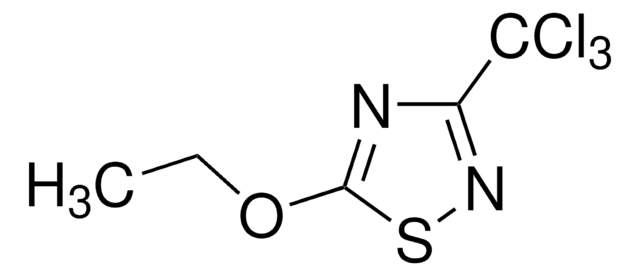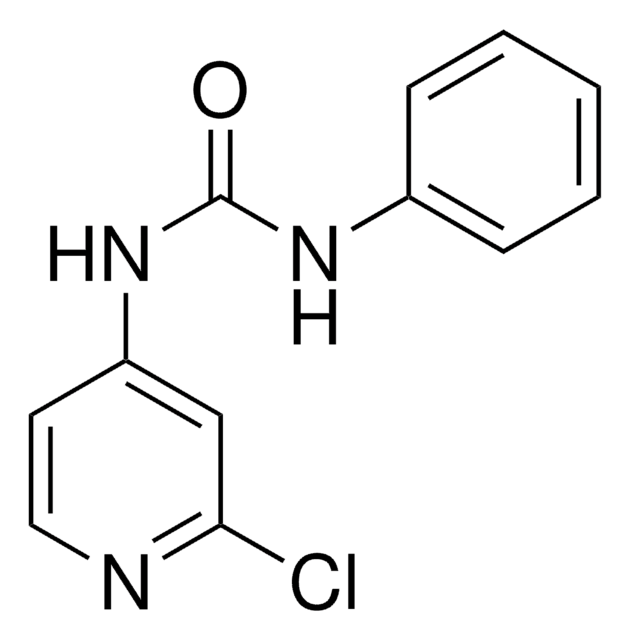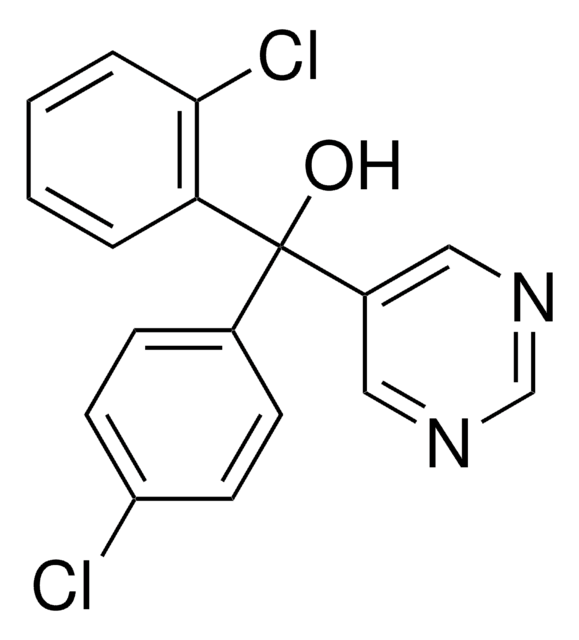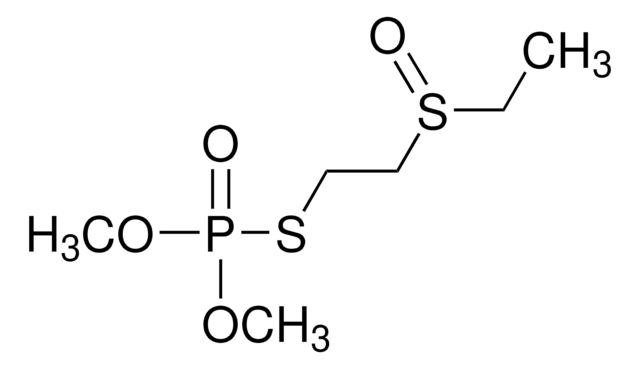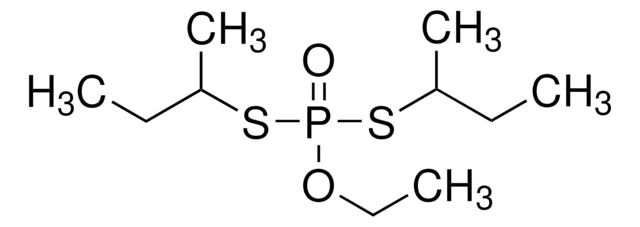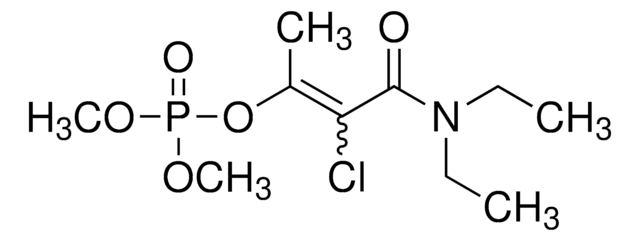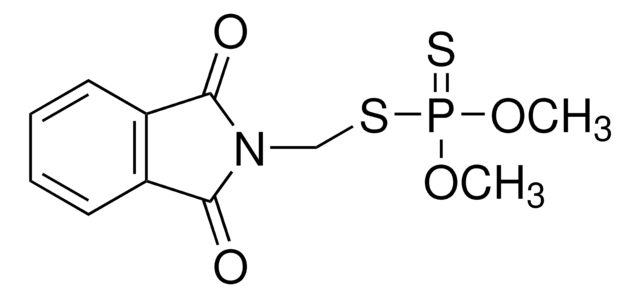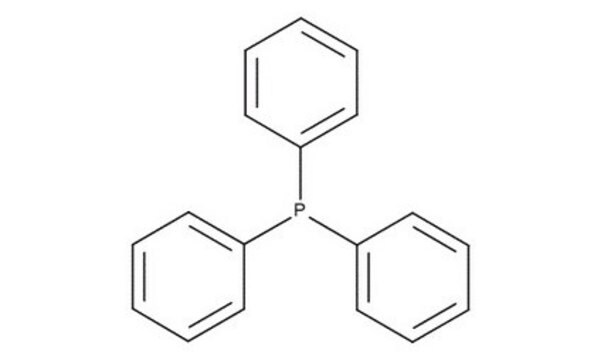CRM01342
Etridiazole
certified reference material, TraceCERT®, Manufactured by: Sigma-Aldrich Production GmbH, Switzerland
Synonym(s):
5-Ethoxy-3-trichloromethyl-1,2,4-thiadiazole, Ethazol
About This Item
Recommended Products
grade
certified reference material
TraceCERT®
Quality Level
product line
TraceCERT®
shelf life
limited shelf life, expiry date on the label
manufacturer/tradename
Manufactured by: Sigma-Aldrich Production GmbH, Switzerland
storage temp.
2-8°C
SMILES string
CCOc1nc(ns1)C(Cl)(Cl)Cl
InChI
1S/C5H5Cl3N2OS/c1-2-11-4-9-3(10-12-4)5(6,7)8/h2H2,1H3
InChI key
KQTVWCSONPJJPE-UHFFFAOYSA-N
Looking for similar products? Visit Product Comparison Guide
Related Categories
General description
Etridiazole is a fungicide primarily effective against oomycetes and widely used in controlling Pythium and Phytophthora species on agricultural and horticultural crops. Etridiazole causes the hydrolysis of cell membrane phospholipids into free fatty acids and lysophosphatides, leading to the lysis of membranes in fungi.
The drinking water standards have regulated a maximum contaminant level (MCL) for Etridiazole in treated waters. Australian drinking water guidelines set an MCL at 0.1 mg L-1. The European Union (EU) drinking water standards regulate a level for any pesticide at 0.0001 mg L-1 and the sum of all pesticides at 0.0005 mg L-1.
Etridiazole was included in Annex I to Directive 91/414/EEC on 1 June 2014 by Commission Directive 2011/29/EU and has been deemed to be approved under Regulation (EC) No 1107/2009, as per Commission Implementing Regulation (EU) No 540/2011, as amended by Commission Implementing Regulation (EU) No 541/2011. The inclusion in Annex I of Directive 91/414/EEC was restricted to uses of Etridiazole as a fungicide in non-soil bound systems in greenhouse. Maximum residue levels (MRLs) have been set according to Reg (EU) 2017/1777 for Etridiazole for various products of plant and animal origin from 0.05 to 0.4 mg/kg.
Application
- To evaluate the teratogenic and developmental toxic effects of etridiazole on zebrafish embryos
- Screening potential endophytic biofertilizers with fungicides tolerance and plant growth-promoting characteristics
- To investigate the photodegradation of etridiazole by UV radiation at 254 nm during drinking water treatment
- To determine the adsorption and desorption behavior of etridiazole and oxamyl on polyethylene sheets and polyvinyl chloride tubing used in horticulture
- To develop a selective and sensitive analytical method for the determination of a carboxylic and a mercapturic acid metabolite of etridiazole in urine
Recommended products
Legal Information
Signal Word
Warning
Hazard Statements
Precautionary Statements
Hazard Classifications
Acute Tox. 4 Oral - Aquatic Acute 1 - Aquatic Chronic 1 - Carc. 2 - Skin Sens. 1
Storage Class Code
10 - Combustible liquids
WGK
WGK 3
Flash Point(F)
310.1 °F - open cup
Flash Point(C)
154.5 °C - open cup
Choose from one of the most recent versions:
Certificates of Analysis (COA)
It looks like we've run into a problem, but you can still download Certificates of Analysis from our Documents section.
If you need assistance, please contact Customer Support.
Already Own This Product?
Find documentation for the products that you have recently purchased in the Document Library.
Global Trade Item Number
| SKU | GTIN |
|---|---|
| CRM01342-50MG | 4065265079105 |
Our team of scientists has experience in all areas of research including Life Science, Material Science, Chemical Synthesis, Chromatography, Analytical and many others.
Contact Technical Service